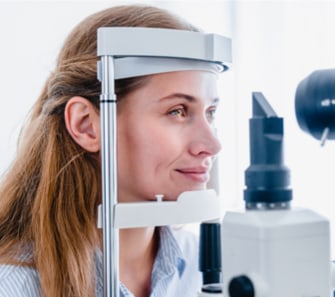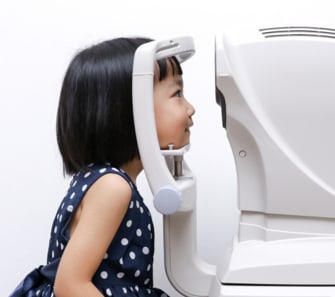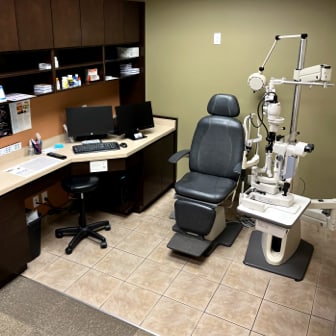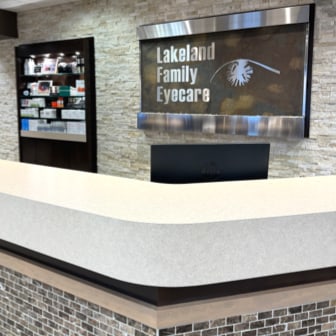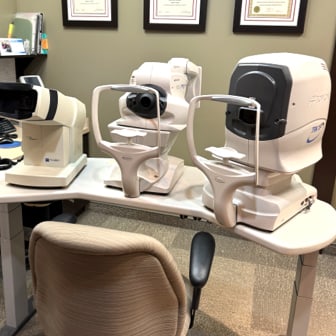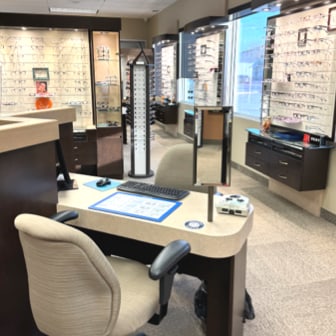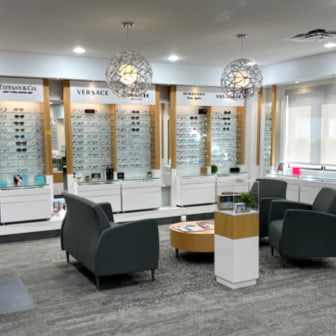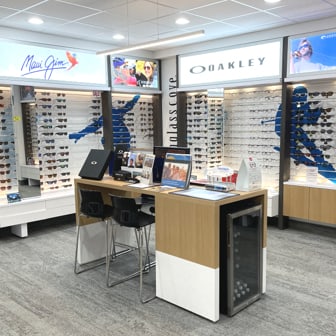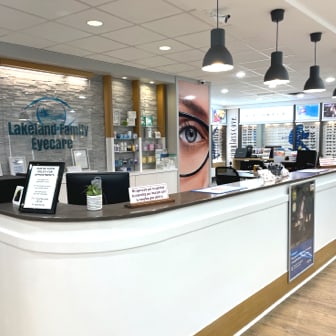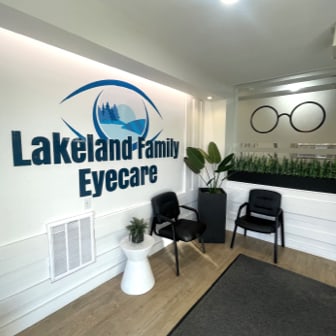It’s not unusual to notice changes in your vision over time. Maybe you’ve started squinting to read menus, struggling with glare while driving at night, or feeling eye fatigue at your desk. But what causes these changes, and why do they seem to happen suddenly, or worsen without warning?
There’s no one-size-fits-all answer, as vision can change for many reasons. From the natural aging process to underlying health conditions and daily habits, several factors may contribute to your declining eyesight. Understanding what might be affecting your vision is the first step toward protecting it.
Common Age-Related Changes
As people age, it’s natural for their eyes to undergo gradual changes that affect clarity and focus. One of the most common age-related conditions is presbyopia, which typically begins to appear in the early to mid-40s. This occurs when the lens of the eye becomes less flexible, making it harder to focus on close-up tasks such as reading.
Other common age-related concerns include:
Cataracts
This condition causes the clear lens of the eye to become cloudy, which can result in blurred or hazy vision, sensitivity to light, and muted colours.
Macular Degeneration
Age-related macular degeneration (AMD) affects central vision, making it difficult to read, recognize faces, or drive.
Glaucoma
Often referred to as the “silent thief of sight,” glaucoma involves damage to the optic nerve, typically caused by increased pressure within the eye. It can progress without symptoms until vision loss occurs.
These conditions often develop slowly, making routine eye exams essential for early detection.
Prescription Changes & Refractive Errors
If you wear glasses or contact lenses, your prescription may change over time. Refractive errors, such as myopia (nearsightedness), hyperopia (farsightedness), and astigmatism, occur when the shape of your eye prevents light from focusing correctly on the retina.
When your prescription no longer matches your eyes’ needs, you might notice:
- Difficulty seeing objects at a distance or up close
- Frequent headaches
- Increased eye strain or fatigue
- Blurry or fluctuating vision
Even minor changes in your refractive error can impact daily comfort, so updating your prescription regularly is key to maintaining visual clarity.
The Impact of Digital Eye Strain
For many people, especially those who work on computers or use smartphones frequently, digital eye strain can be a daily challenge. Staring at screens for long periods can lead to:
- Blurred vision
- Dry, irritated eyes
- Headaches
- Difficulty refocusing after screen time
These symptoms often stem from reduced blinking, poor lighting, or improper screen distance. Even children and teens are increasingly affected, as screen time becomes more integrated into school and leisure activities.
Adjusting your screen habits, like following the 20-20-20 rule (looking at something 20 feet away for 20 seconds every 20 minutes) can help reduce the strain. Positioning screens at a comfortable angle can also help.
Medical Conditions That Affect Vision
Your eyes don’t exist in isolation; what’s happening elsewhere in your body can impact them, too. Several health conditions are known to affect eye health and vision quality.
Diabetes
Diabetes can lead to diabetic retinopathy, a condition where chronic high blood sugar damages the blood vessels in the retina. This may cause blurry vision, floaters, or even sudden vision loss if left unmanaged.
Hypertension
High blood pressure can also affect the delicate blood vessels in your eyes, leading to changes in vision or damage over time.
Autoimmune & Neurological Conditions
Certain autoimmune diseases, such as lupus or multiple sclerosis, can contribute to inflammation or nerve-related vision changes. Migraines and neurological conditions may also impact how the brain processes visual signals.
If your overall health has changed recently, or you’re managing a chronic illness, it’s worth mentioning it during your next eye exam.
Environmental & Lifestyle Factors
Outside of age and medical conditions, lifestyle can also contribute to why your vision might be deteriorating. Consider how the following may be contributing:
- Smoking can increase your risk of cataracts and macular degeneration
- Sun exposure without UV protection may damage your eyes over time
- Nutrition, particularly if your diet lacks key vitamins like A, C, and E, or omega-3 fatty acids
- Sleep habits, since your eyes need rest to recover from daily visual strain
Simple changes, such as wearing sunglasses with UV protection, incorporating leafy greens and fish into your meals, or getting sufficient sleep, can have a positive impact on long-term eye health.
When to Be Concerned About Vision Changes
Not all vision changes require urgent attention, but some symptoms should prompt a visit to your eye care provider. Watch for:
- Sudden vision loss
- Flashes of light or new floaters
- Eye pain or pressure
- Double vision
- Loss of peripheral (side) vision
These may signal serious conditions like retinal detachment, glaucoma, or other medical emergencies. Prompt evaluation can help prevent complications.
What You Can Do to Support Better Vision
While some changes are out of your control, there are proactive steps you can take to protect your vision:
- Schedule routine eye exams, even if your vision seems stable
- Wear prescription glasses or contacts as directed
- Use proper lighting when reading or working
- Limit screen time where possible, and take regular breaks
- Protect your eyes from UV exposure
- Maintain a balanced diet and manage underlying health conditions
Regular eye exams are more than just a chance to update your glasses; they’re an essential part of maintaining eye health and catching issues early, when they’re easier to manage.
Trusted Support for Your Changing Vision
If you’ve been asking yourself why your vision is getting worse, you’re not alone. Vision changes can be subtle or sudden, temporary or long-term. Whether the cause is related to aging, digital strain, health conditions, or something else entirely, it’s essential to seek care that’s thorough, compassionate, and tailored to your individual needs.
At Lakeland Eye Care, our team offers a comprehensive range of eye care services, including routine exams, innovative disease management, and personalized vision correction. Schedule your appointment today.











